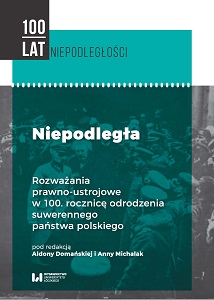
We kindly inform you that, as long as the subject affiliation of our 300.000+ articles is in progress, you might get unsufficient or no results on your third level or second level search. In this case, please broaden your search criteria.




This oral presentation outlines the notions of the political person that crystalize in the constitutional debates in Bulgaria in the nineteenth century. High standards to the moral qualities of the elected representatives and public officers have been set at the outset of the modern Bulgarian state. This historical account bears relevance to the present crisis of the image of the people in politics.
More...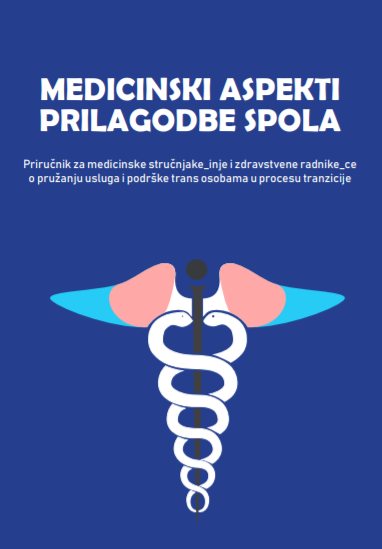
U Bosni i Hercegovini su priznavanje, uživanje, pristup pravima i zaštita ljudskih prava transrodnih osoba na izrazito niskom nivou. Uprkos postojećem kvalitetnom pravnom okviru, ljudska prava transrodnih osoba svakodnevno se krše, pogotovo u domenu pristupa zdravstvenoj zaštiti i adekvatnim zdravstvenim uslugama koje su im potrebne.
More...
Transrodne osobe su nedvojbeno najmarginaliziranija grupa unutar LGBTI populacije. Posljednjih godina velika medijska pozornost bila je usmjerena na raspravu o bračnim zajednicama između istospolnih partnera/ ica, te se trans-specifična pitanja često nisu uzimala u obzir. Trenutno se u općem društvu mnogo više govori o transrodnim osobama, rodnim identitetima i pravu na samoodređenje, međutim, i dalje je prisutan veliki problem stigme i diskriminacije ove manjinske skupine društva. Postojanost transrodnih osoba u društvu je uklonjena iz svijesti većinskog dijela populacije, a posebno u zemljama u kojima prevladava konzervativno razmišljanje koje je naklonjeno patrijarhatu i ostalim religijsko-kulturološkim vrijednostima koje sve „društvene novitete“ predstavljaju štetnima za očuvanje tradicije i općeg morala.
More...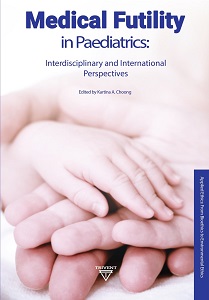
The right to life is entrenched in the German Constitution mandating the state to abstain from unlawful incursions into human rights and to actively protect the enjoyment of human rights. Patient autonomy is derived from these basic rights. Maintaining or terminating medical support measures in end-of-life situation requires the patient’s consent which in minors may have to be decided by the courts based on the presumed will of the patient. Family values will have to be taken into account in establishing the presumed will of a child.
More...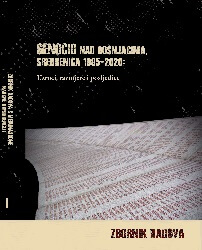
In Bosnia and Herzegovina, human rights are enshrined in the Dayton Constitution of Bosnia and Herzegovina and in the constitutions of the entities: the Federation of Bosnia and Herzegovina and the Republika Srpska. According to the Constitution of Bosnia and Herzegovina, the European Convention for the Protection of Human Rights and Fundamental Freedoms has priority over national legislation in the field of human rights protection. The exercise of human rights and freedoms of citizens in the municipality of Srebrenica in the period from 1995 to 2020, which are guaranteed by the Dayton Peace Agreement and relevant international conventions and other positive instruments for the exercise of human rights, was impossible, especially for Bosnian citizens in Srebrenica who were in the process of exercising the rights of returnees. This research analyzes the forms of human rights violations in the municipality of Srebrenica from 1996 to 2020. The paper presents proposals for the institutional protection of human rights of returnees to the city and municipality of Srebrenica.
More...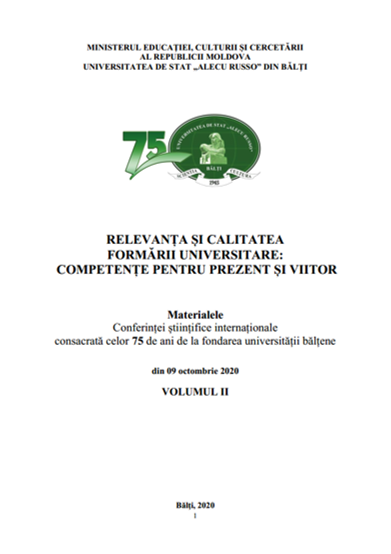
Women's sexual and reproductive health is linked to multiple human rights, including the right to life, the right not to be subjected to torture and ill-treatment, the right to health, the right to privacy, the right to education and the prohibition of discrimination. Considerable global progress has been made in recent decades in the area of women's sexual and reproductive health and rights, and in eliminating related forms of discrimination, and the international community is at the forefront of these efforts. However, despite significant progress, the content and area of reproductive rights remain controversial and women continue to face spread denials and violations of their sexual and reproductive rights and health
More...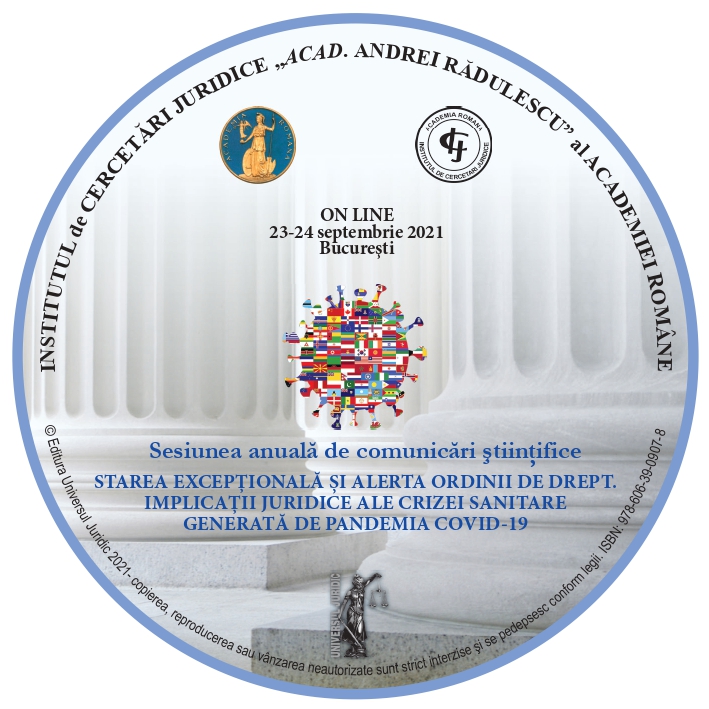
The premise of this study is given by the pandemic of COVID-19, which determined the adopting of measures, at state level, which restricted fundamental rights and freedoms in order to protect public order and health. This article will show that the state has a constitutional nature duty to intervene actively through legal means commensurate with the existing danger in order to remove the imminent threats. Practically, it will be underlined that any restriction must pursue the protection of the general interest or the rights of other persons and must be necessary and proportionate to the need to do so. In this regard, references will be made to the exceptional situations, which are limitingly provided in the Romanian Constitution. One of these situations is the state of emergency, which was declared in our country in March 2020. A constitutionality issue proposed for approach concerns the competent institutions in this matter, in accordance with the principle of state powers separation and balance. It will also be shown that the idea of constitutionality is not limited to the regulation in the Fundamental Law of exceptional situations and measures intended to return to normality, but it also involves verifying the compatibility with the Constitution of normative acts enacted in specific circumstances. In this respect, will be highlighted the control exercised by the Constitutional Court over the laws and ordinances of the Government during the health crisis, which either confirms constitutional validity or reveals defects of unconstitutionality and provides the guidelines for remedy
More...
Compliance with the law is mandatory, but a subject of law cannot be required to comply with a law that is not clear (regarding the unequivocal nature of the object of regulation), accurate (with reference to the accuracy of the chosen legislative solution and the language used) and predictable (on the purpose and consequences it entails), as he cannot adapt his conduct to the normative hypothesis of the law. One of the requirements of the principle of compliance with the laws concerns the quality of normative acts, therefore, any normative act must meet certain qualitative conditions, respectively to be clear, precise and predictable
More...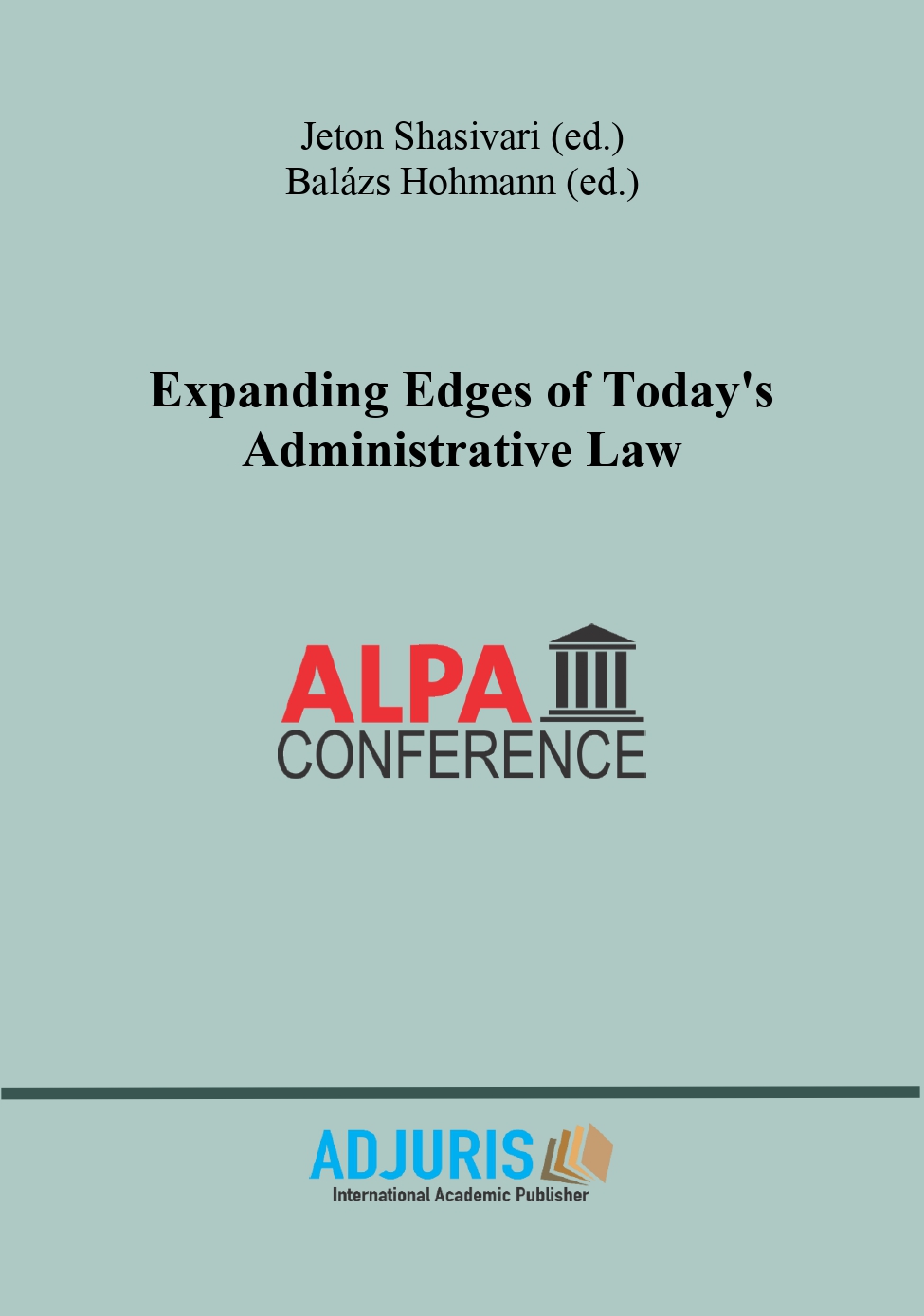
The right to vote is a constitutionally guaranteed right of citizens to elect representatives and to be elected to the representative bodies of a given state. As a subjective public right, the right to vote is a way of indirect participation of citizens in the political life of the state. The main difference between the electoral models, which in itself is based on the legal and political dilemma of which electoral model is best, is directly related to the proportionality of the election results. In this regard, proportional electoral models more reliably reflect the political mosaic of a given society within its parliamentary structure. Therefore, in the electoral literature, it is usually emphasized that the ratio between the votes and the mandates won is provided more in the proportional electoral models than in the majority electoral models. However, the main dilemma is related to the research question of how proportionate is the proportional electoral model and what are the main factors that affect its proportionality. Therefore, with this paper author by explanation of the electoral system of North Macedonia, using: legal interpretive methods, statistical and comparative methods as well as the method of simulating of the election results with one constituency of the last five parliamentary elections in this country (2008, 2011, 2014, 2016 and 2020) held according to the proportional electoral model with six constituencies, will focus on the specific analysis of recent requirements of small political parties for reforming the electoral system with a single constituency, analyzing the advantages and disadvantages of such an electoral reform, taking into account the lessons from the experiences of countries in the region such as: Kosovo and Serbia that implement this electoral system.
More...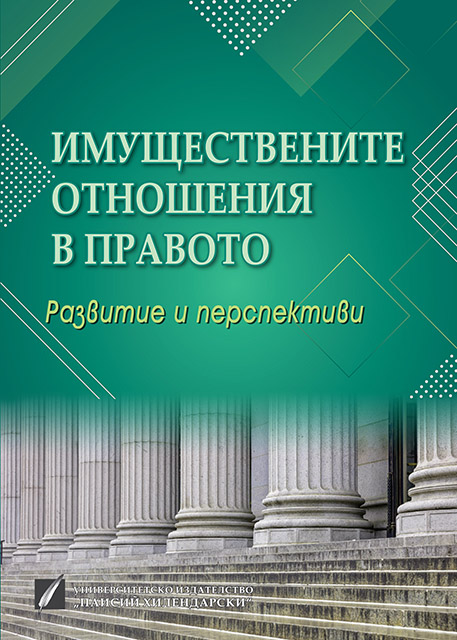
The article attempts to systematize and compare the European and constitutional mechanisms for the protection of property today. The aim is to make a kind of parallel between the protection mechanisms in its withdrawal. This calls for an analysis of the practice in relation to Protocol 1 of the European Convention on Human Rights, as well as the enhanced protection afforded by the individual constitutional courts in the EU Member States. The formation of a broader view on the protection of property at the European level is useful for Bulgarian theory and practice. The article also attempts to outline some of the difficulties of including property in conventional provisions.However, it is a law with a strong economic significance, and economic rights are traditionally regulated in civil law sources. This situation also leads to a critical attitude towards the possibility of protecting at European level a national right as property. The article presents all three parts of Art. 1 of Protocol No. 1, which protects various aspects of property. The first norm protects the substance of the property, the second and the third refer to the applicable regime in the matter of expropriation and control over the use of the property. The European Court of Justice respects the rights of nation states by applying the texts of the Protocol, but in general its case law expands the scope of protection of property. At the national level, such a role is played by the constitutional courts.
More...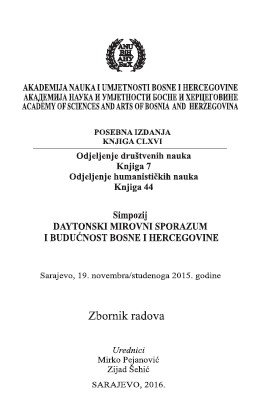
In this work, the author will deal with the nature of the political regime of Bosnia and Herzegovina. Attention will be given to institutional arrangements and their evolution in post-Dayton period, in order to answer the following questions: 1) what is the nature of the political regime; 2) what conditions it; 3) where can we see the limitations of the democratic potential of the political regime, and how to overcome these limitations. The work will be based on the following hypotheses. First, Bosnia and Herzegovina is defined as a democratic country by its constitution, but the model of democracy is based on the competitive-elitist democracy, in the form of consociation, which does not create the opportunities for effective participation of citizens in decision-making processes. Democracy, based on the struggle of national political elites, remains strictly indirect and political. Other spheres of life, such as the economy, are not democratized in the least. The author will analyze the possibility of enriching democracy in the political sphere (direct democracy). The second hypothesis will concern the institutional system of Bosnia and Herzegovina, which is structured so that the political institutions serve as a place of negotiation of the national political elites. While such nature of political institutions is largely conditioned by the nature of society and the historical and political circumstances at the time of the adoption of the Constitution, there was a partial evolution of the institutional system since 2000, although its nature is essentially not changed. The merger of national and civil in the functioning of the political institutions has not been achieved, although this would be the optimal solution.
More...
This paper deals with the issue of organizational principle of the state of Bosnia and Herzegovina – which currently rests on the concept of the three constituent peoples – questioning its relationship with the principles of equality and non-discrimination, which have been proclaimed both in the state and entity constitutions. The conclusion that follows confirms the thesis that a divided society, in which the ethno-cultural divides are politically most important, underlying the political fragmentation of society, is an environment in which the value of these guaranteed principles cannot be realized. By analysing the content and through teleological method, research particularly focuses on the aspect of human rights where, through the application of the criteria of ethnicity, we can clearly see their discriminatory effects. This paper seeks the answer to the question of what is the most reliable basis on which the state and society of Bosnia and Herzegovina should develop. The author finds that for this purpose the most suitable is the affirmation of the principle of “differentiated citizenship”, which allows the self-determination of each individual, thus giving them the possibility of freedom that they will use in the way that suits them the best. In this way, the current differentiation in human rights – according to the criterion of ethnicity – would lose its objective and reasonable justification.
More...
The result of the process of Europeanization of the Balkans is a continuous loss of plurality of life forms, which flowed with the emergence of monoethnic nation states. Entering the modernity in the Balkans – in late nineteenth and early twentieth century – meant the resolution of social plurality. This process, when it comes to Bosnia and Herzegovina, which had no unequivocal ethnic host, has taken the form of constitutionally and politically imposed multiculturalism or constitutional multiculturalism, which is nothing more than an incubator for future mono-ethnic nation-states. In its fullest sense, apart from one state and a central nation, ethno-nationalism also requires its own, unique culture. In this sense, Gellner concludes that “under certain circumstances the implementation of these political formulas must include the exchange of population or expulsion, and more or less forced assimilation, and sometimes even liquidation, in order to achieve the close connection between the state and the culture that is the essence of nationalism.” The revolutionary national-statehood reconstruction of the plural Bosnian-Herzegovinian social and political community followed the form of a nation-state, as an inseparable part of the wave of democratization that had swept the eastern part of Europe. In considering alternatives to overcome this situation, the author suggests that the abolition of the ethno-political mechanism does not mean the abolition of the nation and its identity, it does not mean “the destruction of differences as such as the equalization of all. Conversely, it initiates the release and proliferation of differences – differences that do not create social hierarchies”. This is therefore a critique of the unjust socio-political hierarchy, a kind of political hegemony, and is not about the fight for the abolition of any kind of diversity, including ethnic. The aim is to abolish laws, socio-political structures that maintain hegemonic privileges, and the hierarchy topped by a class of ethno-political entrepreneurs. The author argues that the abolition of ethno-political mechanisms means the abolishment of the conditions that keep the citizens and peoples of Bosnia and Herzegovina in servitude.
More...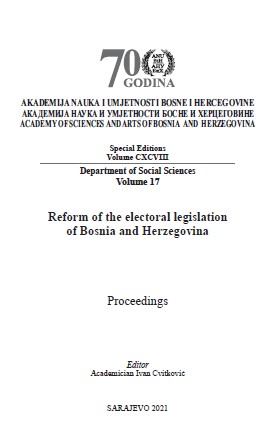
The slow or blocked implementation of the election results after the 2018 General Elections deepened the overall political crisis in BiH, so even 20 months after the elections, the election results were not fully implemented. The BH electoral system thus becomes a permanent catalyst for political blockades, and as such slows down or blocks the process of consolidating parliamentary democracy. The last three election cycles have undoubtedly confirmed the paradox of the electoral system and the Election Law. Namely, all relevant actors, from the election administration, through domestic and international independent election observers, to political entities themselves, although with a number of well-founded objections and documented anomalies in the election process, generally recognize election results and unanimously advocate thorough improvement of the electoral system. This study provides theoretical and empirical insight into key provisions of electoral legislation or critical points of the electoral system that must be innovated, redefined and modernized in order for the consolidation of parliamentary democracy, efficient political system, responsible executive and legislative power, and citizens’ trust in the electoral system to become axioms. socio-political reforms in the process of EU and internal integration.
More...
The electoral system of Bosnia and Herzegovina (hereinafter: BH) is based on the constitutional and legal solutions which, in their original form, as is well known, do not enable the consistent realization of generally accepted international democratic standards regarding the equality of citizens’ suffrage/voting rights. The European Court of Human Rights in Strasbourg has already taken a position on this in certain individual cases. The constant violation and ignoring of the obligations related to the harmonization of the internal legal order of BH with international democratic standards and judgments of the European Court of Human Rights - which are obligations of a constitutional and legal nature - has led not only to further violation of citizens’ voting rights, but also to further development of undemocratic political concepts that seek to introduce new forms of discrimination in the phase of elections. The terms and notions are interpreted and explained in a hitherto unknown and fundamentally wrong way in the theory and practice of constitutional and public law - such as “legitimate representation of constituent peoples”, “authentic representatives of constituent peoples”, which is followed by the efforts to “nationalize” constituent peoples etc. and with the intention of any theoretical grounding of these inconsistent political views. Besides, in the conditions of undemocratic constitutional solutions and taking into account the real power of decision-making within institutions, the election winner is not crucially determined by the citizens in the elections - as shown by the last general elections in 2018. Among the other things, the absolute election winner regarding possibility of establishment of government and blocking the implementation of election results was promoted by the decision/Instruction of the BH Central Election Commission related to the distribution of delegate seats in the House of Peoples of the Federation of BH, and thus (almost in advance!) determined by inconsistent constitutional/legal solutions and electoral geometry. This further disqualifies the position of the citizens and violate the generally accepted international democratic standards without which a democratic society cannot exist and develop. All of this seriously violate the democratic legitimacy and capacity of the institutions as well as the principle of rule of law and fulfillment of legal and political obligations on the path of European integrations. In contrast, BH’s legal obligations towards electoral reform, no matter how many different modalities they may have, are quite clear and imply, in the first place, equality of active and passive voting rights of citizens regardless of ethnicity or any other circumstance, which is subject of consideration on this occasion.
More...
The paper analyzes the specific political matrix of the national state established on democratic principles. Passive and active voting right is the foundation on which a modern (democratic) state is built. However, there is an anomaly in Bosnia and Herzegovina that is very difficult to integrate into the legal framework. Most countries in the world are national states where the nation is the product of a certain political ideology, on the other hand in BiH nations are based on organic ideas such as religion - where the political practice is proselytism. The problem arises from the fact that democracy is in fact, first of all, a category of emancipation and only then a question of law and politics. Politics is in the last place in this line, but in Bosnia and Herzegovina there is only politics - emancipation and law are understood as products of politics. In this paper, the authors discuss a specific political consensus on certain social categories that will be the platform of the future election law. It is proposed to re-establish the order: emancipation, law and politics, because it is the only way for the survival of the “organic” heterogeneous social community that wants to live in a democratic framework.
More...
In this paper “Ideas for the Reform of Electoral Legislation”, apart an introduction, following segments are explored: social and historical conditions in which political pluralisms upon ethnic basis is formed in Bosnia and Herzegovina in 1990, then, creation of legal frame regarding electoral system of Bosnia and Herzegovina in post Dayton development of Bosnia and Herzegovina. In topic’s elaboration, focus is situated on ideas for the reform of electoral legislation. Following ideas are presented: how to impose the regulation on a by- elections, in all numerous situations, when winning political parties delay an implementation of parliamentary elections more than six months. There is also an initiative for electoral census to be raised for the participation of political parties in parliamentarian elections, instead of 3% for the electoral census to be 5%. This is the way to create an enlargement of the political scene: a smaller number of political parties would participate in elections. At the same time, winning political parties would gain larger coalition potential. Additionally, there is the third idea for the reform of electoral legislation: introduction of technical innovations regarding the act of voting at the electoral places.
More...